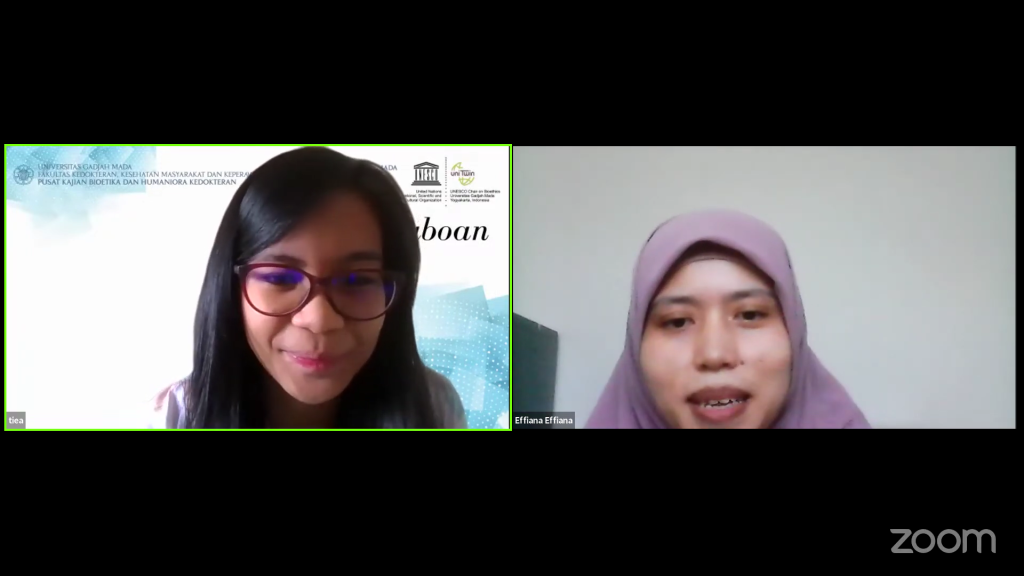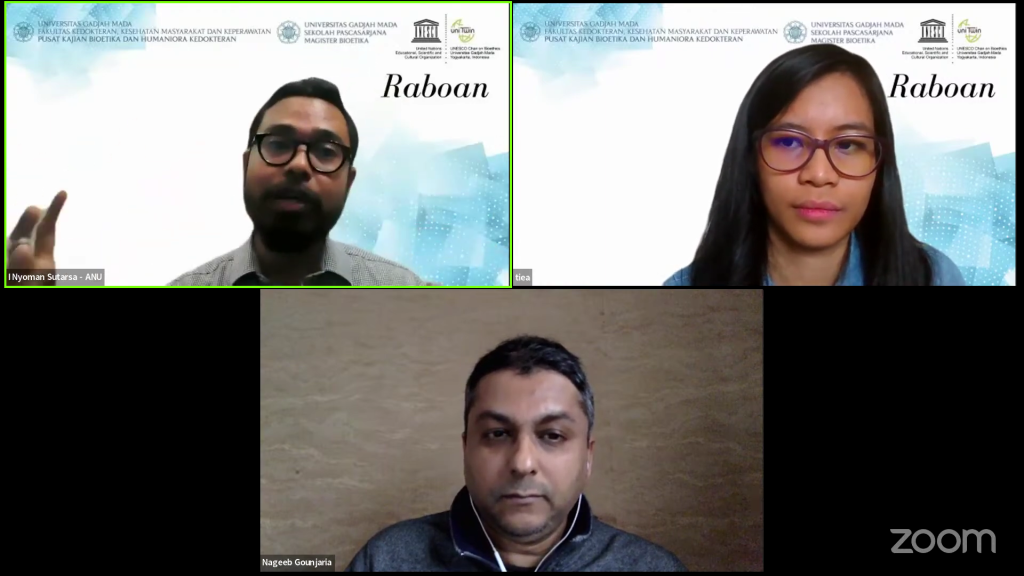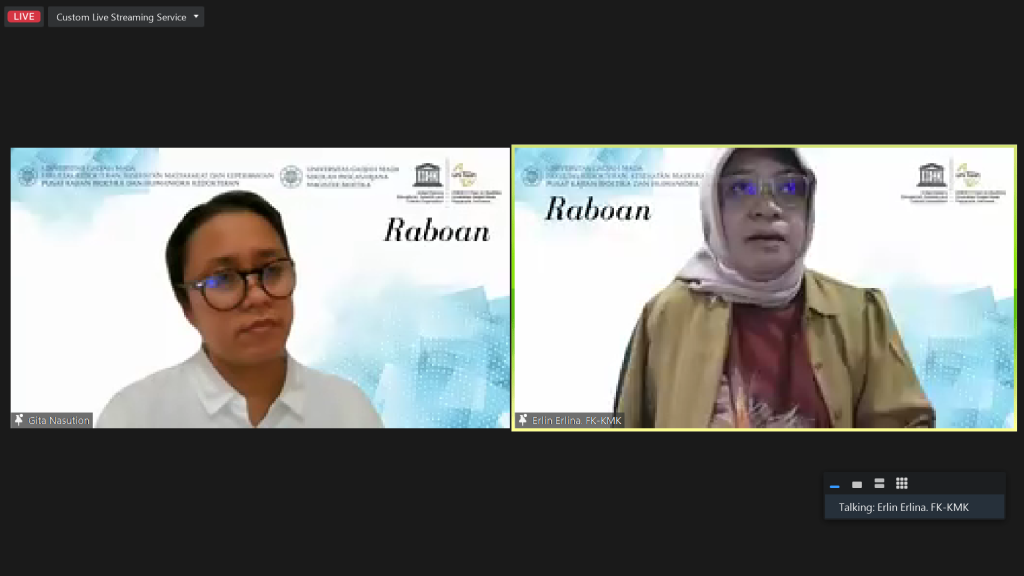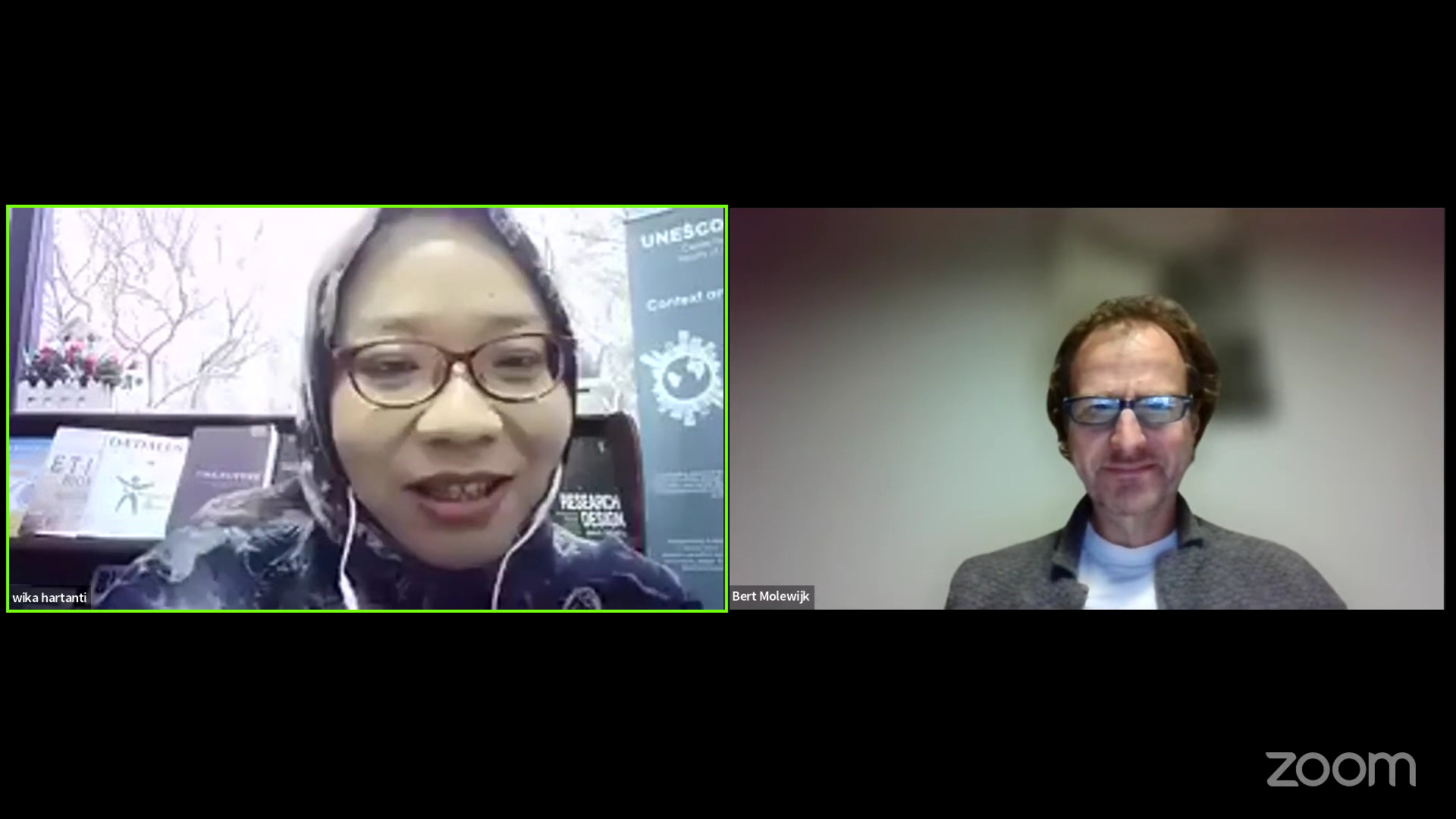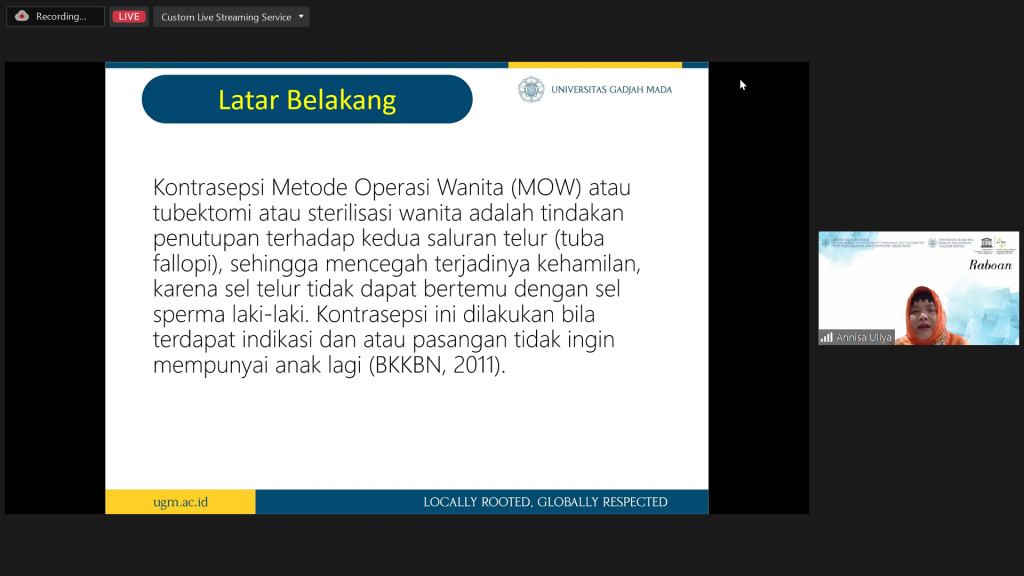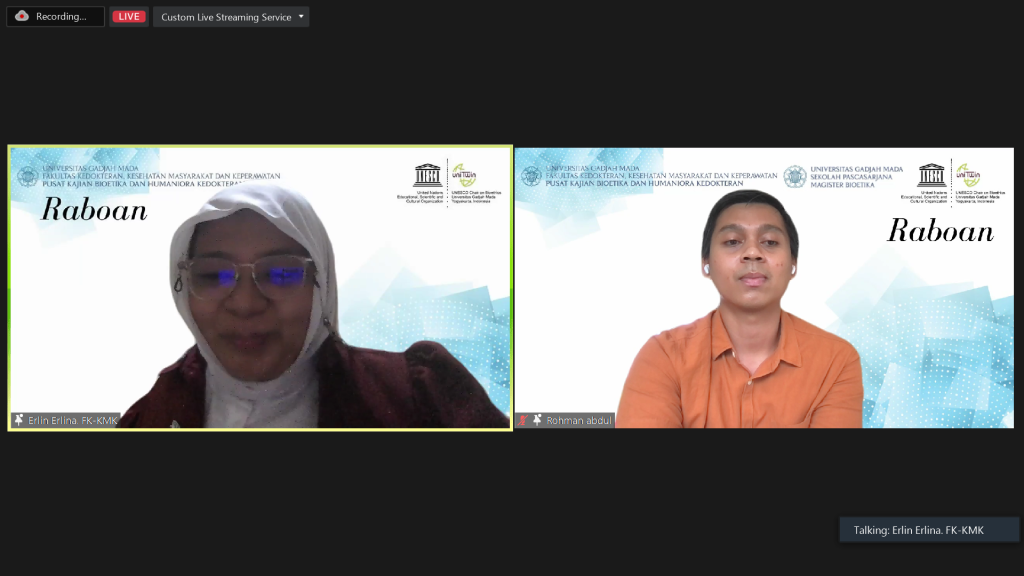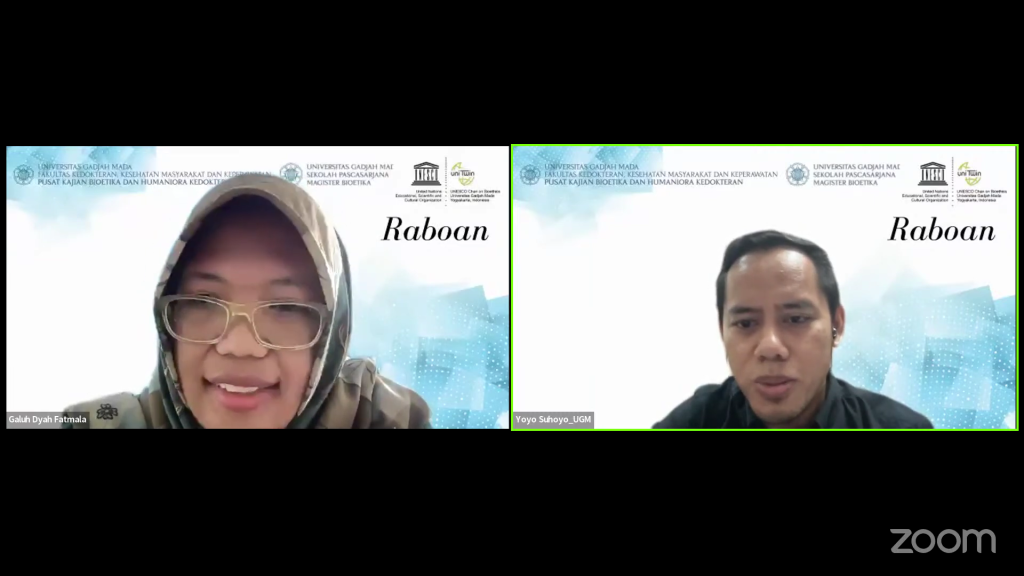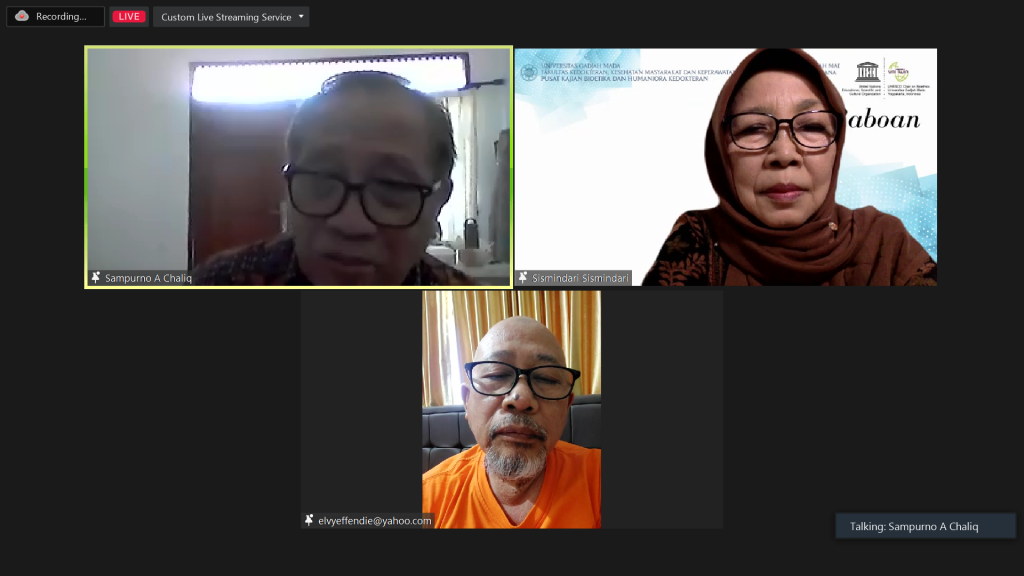Arsip:
News
On Wednesday (29/03), Center for Medical Bioethics and Humanities held the Raboan Discussion Forum again. This time, the topic raised was Ethical Aspects When Seeking Treatment In A Neighboring Country.
Wednesday (1/03), the Center for Medical Bioethics and Humanities held the Raboan Discussion Forum. This time, the topic that we raised was Climate Change and Rural Health Care.
Wednesday (22/02) Center for Bioethics and Medical Humanities (CBMH FK-KMK UGM) just held Raboan Discussion Forum. The weekly online forum invited Gita Nasution, Ph.D from Australia National University.
Center for Bioethics and Medical Humanities (CBMH FK-KMK UGM) held Raboan Discussion Forum last Wednesday (15/2). The discussed topic on the forum was “A Dialogical Approach to Clinical Ethics Support for Critical Yet Respectful Learning.” […].
Wednesday (8/2), the Center for Medical Bioethics and Humanities held the Raboan Discussion Forum. The topic that we raised was Bioethical Problems in Women’s Surgical Methods of Contraception.
Wednesday (01/02) Center for Bioethics and Medical Humanities Faculty of Medicine Public Health and Nursing held a Raboan Discussion Forum. The virtual forum raised the topic Abandonment of Ethics, Early Directions to Violation of the […].
Center for Bioethics and Medical Humanities held Raboan Discussion Forum on Wednesday (25/01). The weekly discussion forum raised topic Digital Health Transformation Impact on Health and Inclusion: Some Moral Considerations.
On Wednesday (18/1), the Center for Medical Bioethics and Humanities held the Raboan Discussion Forum. The topic discussed was the Ethical Perspective on Artificial Womb. The speaker for this discussion was Dr. Theza Elizianno Andrew […].
Center for Bioethics and Medical Humanities held Raboan Discussion Forum on Wednesday (11/01). The weekly discussion forum raised topic Ethical Issue in Assesment. The topic was presented by dr.
Center for Bioethics and Medical Humanities (CBMH FK-KMK UGM) held Raboan Discussion Forum on Wednesday (21/12). CBMH FK-KMK UGM invited Dr. Sampurno, MBA, Apt, ex-head of Badan Pengawas Obat dan Makanan Republic Indonesia (2001-2006).

